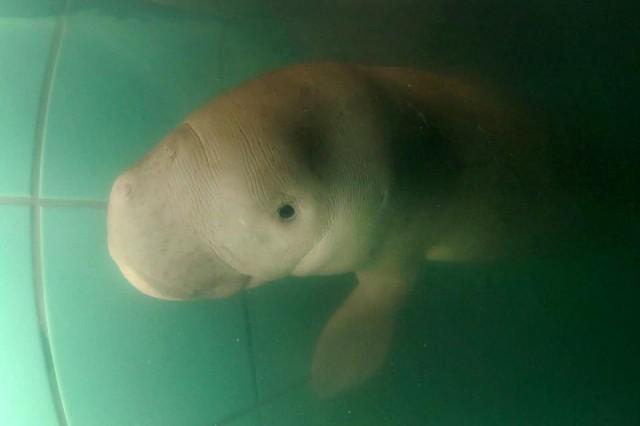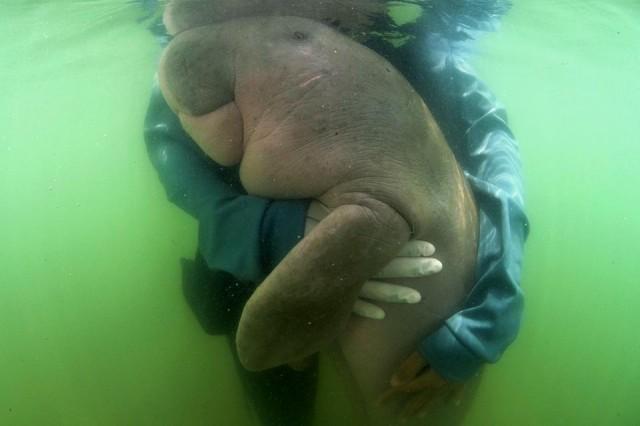Second orphaned baby dugong found, both now under Thai royal’s patronage

BANGKOK, Thailand — A second orphan baby dugong found stranded on a southern Thai beach has been named "handsome sea prince" by one of the country's princesses, officials said Saturday, as sea cow craze sweeps the kingdom.
Southern Thailand's waters are home to about 250 of the mammals, which are closely related to the manatee and classified as vulnerable. A baby dubbed Mariam washed ashore on its beaches last month—sparking interest in ocean conservation (see video of Mariam below).
Mariam captured hearts in viral social media posts last month showing her playfully nuzzling up to rescuers in shallow waters off southwestern Thailand.
LOOK: Thailand’s orphaned baby dugong Mariam becomes conservation star
The second baby dugong washed ashore further up the coast a week ago. It was found Monday with scratches on its back and is now rehabilitating in a pool at the Phuket Marine Biological Center.
Thailand's Department of Marine and Coastal Resources (DMCR) announced, "Princess Sirivannavari has graciously named the baby dugong Jamil."
The name "is from the Yawi language, and it means 'handsome prince of the sea,'" the DMCR said.
Yawi is used in Thailand's southernmost provinces and spoken by Muslim Malays.
The princess, who is a fashion designer, has taken "both dugongs... under her royal patronage," the DMCR said in its post.
It added she has set up "working teams for the conservation of Thailand's sea and corals, to conserve rare and near-extinct marine animals."
Mariam is female and believed to be about six months old, while Jamil is half her age.
Normally dugongs don't leave their mothers until they are a little more than a year.

The DMCR set up a round-the-clock livestream showing the two beloved baby dugongs. It went live Sunday, allowing a more in-depth look at the celebrity sea cows.
The orphaned dugong duo are being held separately, but anyone with an internet connection can now see them on the livestream, which uses eight camera angles and scheduled feeding times.
"We show them live because we don't want people to disrupt them by going to see them at the current locations," said Kongkiat Kittiwatanawong, director of the Phuket Marine Biological Center.
He added that cameras will also help with monitoring their recovery.
A little after 2 p.m. Jamil was seen splashing away in a small pool in the Phuket center.
Experts say interest in the dugongs has helped galvanize awareness in ocean conservation.
The slow-moving mammals feed on sea grass but are at risk from habitat loss, water pollution, and nets used in fishing.
Dugong beachings can be attributed to fishing and other human activities, said the Phuket Marine Biological Center.
The dugongs are the latest marine creatures to make headlines in Thailand, whose plastic-choked waters are also a threat to habitats.
Last year a whale died off the country's coast after swallowing more than 80 plastic bags. — Agence France-Presse



